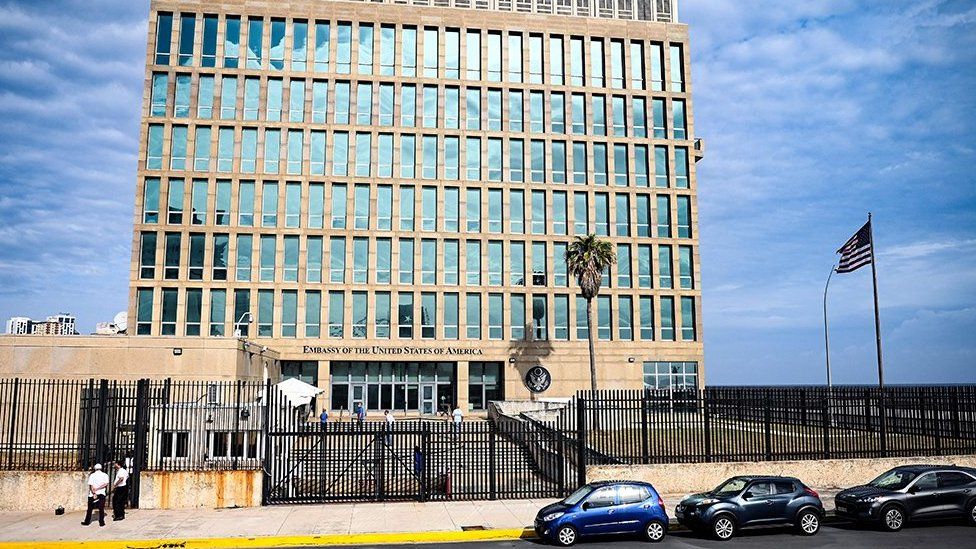Most cases of a mysterious illness striking US officials dubbed “Havana syndrome” were not caused by a foreign power, CIA officials say.
Since 2016, US diplomats around the world have reported symptoms – sparking suggestions Russia, China or another adversary could be responsible.
But a majority of 1,000 cases looked at by the CIA can be explained by stress or natural causes, officials say.
The release of the findings has angered some of those who fell ill.
The CIA is still looking into a small number of unexplained cases, where the role of a foreign power has not been ruled out.
Americans who have been hit by Havana syndrome have described dizziness, headaches and an intense and painful sound in their ears. First reported in Cuba in 2016, cases have since been reported in Geneva, Berlin and elsewhere.
Some US officials have previously suggested the illness could be caused by microwave attacks, fuelling speculation the illness could be a kind of weapon from a foreign actor such as Russia. Moscow has always denied any involvement.
But a CIA official told the BBC’s US partner CBS the agency had “so far not found evidence of state-actor involvement in any incident”.
Most cases could be explained by “medical conditions or environmental and technical factors, including previously undiagnosed illnesses”, the official added.
The official said it was “unlikely that a foreign actor, including Russia, is conducting a sustained, worldwide campaign, harming US personnel with a weapon or mechanism.”
Groups representing victims of the illness said they were disappointed by the release of the CIA’s interim report.
“Not all the cases can be explained away. This cannot and must not be the last word on this matter, because it is neither definitive, nor comprehensive,” the Advocacy for Victims of Havana Syndrome group said.
But CIA Director William Burns said its investigations would continue.
“While we have reached some significant interim findings, we are not done,” Mr Burns said in a statement to the New York Times.
“We will continue the mission to investigate these incidents and provide access to world-class care for those who need it.”


























